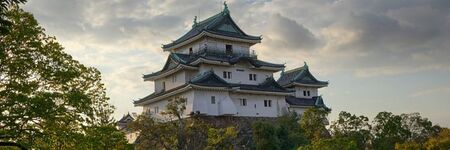Wakayama Prefecture Japan
- Members
Wakayama Prefecture is a prefecture of Japan located in the Kansai region of Honshu. Wakayama Prefecture has a population of 944,320 (as of 1 October 2017) and has a geographic area of 4,724 square kilometres (1,824 sq mi). Wakayama Prefecture borders Osaka Prefecture to the north, and Mie Prefecture and Nara Prefecture to the northeast.
Wakayama is the capital and largest city of Wakayama Prefecture, with other major cities including Tanabe, Hashimoto, and Kinokawa. Wakayama Prefecture is located on the western coast of the Kii Peninsula on the Kii Channel, connecting the Pacific Ocean and Seto Inland Sea, across from Tokushima Prefecture on the island of Shikoku.
Activities

|
NerveNet: Regional Resilient IoT Platform | |
Project Description Points
| ||
Details
On July 17–18, 1953, a torrential heavy rain occurred, followed by collapse of levees, river flooding and landslides in a wide area. Many bridges and houses were destroyed. According to an officially confirmed report by the Government of Japan, 1,015 people died, with 5,709 injured and 7,115 houses lost.
- Geography
As of 31 March 2020, 13 percent of the total land area of the prefecture was designated as Natural Parks, namely the Setonaikai and Yoshino-Kumano National Parks; Kongō-Ikoma-Kisen and Kōya-Ryūjin Quasi-National Parks; and Enju Kaigan, Hatenashi Sanmyaku, Hikigawa, Jōgamori Hokodai, Kōyasanchō Ishimichi-Tamagawakyō, Kozagawa, Nishiarida, Oishi Kōgen, Ōtōsan, Ryūmonzan, Shiramisan-Wadagawakyō, and Shirasaki Kaigan Prefectural Natural Parks.

